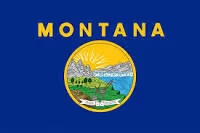Top-Rated Debt Collection Agency in Montana
Efficient and Trustworthy Debt Collection in Montana - No Initial Fees, Pay Only for Results. Avail a FREE Consultation or Submit Your Claim Today.

Unlock the Ease of Debt Recovery in Montana with Debitura's Proven Collection Services
Discover the ease of debt recovery in the vast landscape of Montana with Debitura's proven collection services. As an adept Debt Collection Agency in Montana, we offer a robust portfolio tailored to meet the unique needs of local businesses. We're armed with a comprehensive understanding of Montana's regulations on debt collection, translating into efficient and effective strategies to reclaim your outstanding debts. Choose Debitura and unlock the key to seamless accounts receivables management in Big Sky Country.

Comprehensive A-Z debt recovery solutions in Montana.

Data-driven, tailored recovery for Montana debts.

Harnessing the expertise of 500+ global debt recovery professionals.

87% success rate for debt recovery in Montana.
Key facts
- Debt Collection Laws: Debt collection in Montana is regulated by state laws with varying statutes of limitations.
- Statutes of Limitations: Judgments have a 10-year limit, written contracts 8 years, and oral contracts 5 years.
- Penalties for Bad Checks: Penalties include a service charge and damages not exceeding the check value by more than $500.
- Wage Garnishment: Wages can be garnished in Montana, with disposable earnings subject to certain limitations.
- Property Levies: Real and personal property can be levied upon and sold, subject to certain exemptions.
- Exemptions from Execution: Certain exemptions from execution in Montana are not subject to limitations.
- Debt Collection Regulations: Debt collection in Montana does not require licensing, bonding, or other regulations.
- Interest Rates: Legal maximum interest rate is 15% annually by written agreement or 6% above the Federal Reserve's prime rate.
- Late Payment Fees: Montana law does not specify a maximum late fee that can be charged.
- Small Claims Limit: The small claims limit in Montana is $7,000.
This guide is not legal advice and laws/rules may change; consult a qualified professional for personalized assistance. Use at your own risk.
Introduction to Debt Collection in Montana
Debt collection is a process initiated by creditors to recover monies owed by individuals or business entities, referred to as debtors. This process can be a complicated affair, particularly due to the unique regulations that govern it in different states, Montana included.
The debt collection process revolves around three main elements: the debtor, the creditor, and in most instances, a collection agency. The debtor is essentially the individual or business that owes money to another party, called the creditor. The creditor might be a bank, a service provider, a commercial institution, or even an individual who extended credit to the debtor. At times, when in-house collections efforts from creditors fail to induce payment, collection agencies may come into play. These agencies are third-party companies employed by the creditor to recover the owed amount.
Before engaging the specialized services of a collection agency, creditors usually exhaust all pre-legal means to recover the debt. These methods could include sending reminder notices, making phone calls, or offering to restructure the debt. If these attempts are unsuccessful, the process moves to the legal phase, where the creditor or the collection agency, depending on the agreement, may decide to sue the debtor. This move can result in a debt enforcement, the final phase of the debt collection process. Debt enforcement means that if a court judgment is issued in favor of the creditor, the debtor's assets or wages may be seized or garnished to settle the debt.
Stages of Debt Collection
Understanding the stages of debt collection aids in the appreciation of your rights and options as a debtor, creditor, or collection agency in Montana. Generally, the debt collection process can be categorized into three key stages namely, pre-legal, legal, and debt enforcement.
The pre-legal stage of debt collection is the first line of approach in recovering debt. It mostly consists of friendly reminders, calls, or negotiation attempts aimed at getting the debtor to settle the amount owed without involving the courts.
Should the pre-legal methods fail to secure the dues, the process progresses into the legal phase. Here, lawyers might be called upon to step in. Typically, formal demand letters are sent to the debtor spelling out the legal consequences of failure to pay. The legal phase could possibly result in a lawsuit if the owed amount remains unsettled. It is integral at this point that either party abides by the Fair Debt Collection Practices Act (FDCPA), to ensure that the rights of the debtor are not infringed upon.
Once a court ruling is made against the debtor, we enter into the final phase: debt enforcement. At this stage, the creditor, or the collection agency operating on their behalf, has the legal right to take steps to recover the debt. Depending on the circumstances, they might decide to garnish the debtor's wages, seize their assets, or even enforce a repossession. The specific methods of execution, however, are subject to state laws and thus vary as per jurisdiction.
Debt Collection Laws In Montana
At the federal level, the Fair Debt Collection Practices Act (FDCPA), the Fair Credit Reporting Act (FCRA), and the Telephone Consumer Protection Act play critical roles in governing debt collection practices. These laws dictate the permissible ways collection agencies can impact credit ratings and establish rules for telephone communications with debtors. In addition to these, other federal regulations also guide the process and methods of debt collection.
The FDCPA, in particular, safeguards consumers against abusive, unfair, or deceptive practices during the debt collection process, while the FCRA regulates how debt collection is reported on credit histories. The Telephone Consumer Protection Act, moreover, sets parameters for contact between debtors and creditors.
The Consumer Financial Protection Bureau (CFPB) and the Federal Trade Commission (FTC) are key regulatory bodies that oversee debt collection. While the CFPB works to protect consumers from unfair financial practices, the FTC enforces the provisions laid out in the FDCPA.
Montana State Laws Governing Debt Collection
On the state level, Montana regulates debt collection through specific state laws and statutes. These laws work alongside federal legislation to set the framework around how debts are collected within the state.
For instance, the statutes of limitations for debt collection in Montana vary based on the type of debt. Actions on judgments have a statute of limitations of 10 years, and contracts in writing have a statute of limitations of 8 years. Contracts not in writing have a statute of limitations of 5 years. Credit card accounts and bad checks have a statute of limitations of 5 years from the date of the last payment and 6 years from the date of demand for payment, respectively. Negligence claims have a 3-year statute of limitations, while property damage claims have a 2-year statute of limitations.
Additionally, Montana allows for the garnishment of wages and levying of bank accounts during the debt collection process. The process server must provide a notice of seizure to the debtor, listing the exemptions available and explaining the court process for requesting an exemption. In Montana, wages, mileage, and travel expenses are considered earnings subject to garnishment, with limits defined by state statute.
Penalties and Exemptions in Montana
Montana enforces penalties in cases involving bad checks and stipulates that all prior liens must be paid before the judgment lien during a Sheriff's sale. It also outlines a homestead exemption from the proceeds of a property sale for debtors.
Personal property can be auctioned to satisfy a judgment, but the debtor in Montana is entitled to certain exemptions. These include household furnishings and goods, one motor vehicle, work tools, and unmatured life insurance contracts. Certain exemptions from execution are not subject to limitations, including prescribed health aids, veterans' benefits, disability benefits, individual retirement accounts, maintenance and child support, and burial plots for the debtor and their family.
It's crucial to note that while debt collection in Montana does not necessitate licensing or bonding, it still requires strict adherence to both federal and state regulations. Court costs for debt collection cases can vary, and they typically include filing fees, service of summons, default judgment, abstracting a judgment, issuance of a writ of execution, and filing a foreign judgment, among others.
This overview of Montana's debt collection laws is meant to provide a helpful lay of the land but should not be substituted for legal advice. Always consult with legal counsel when dealing with debt collection issues within the state of Montana to ensure you are accurately guided by the multitude of state-specific and federal regulations at play.
Risk Free Debt Collection
Upload your claim and get started with our 100% no-cure-no-pay collection solution.
The Debt Collection Process In Montana
The debt collection process in Montana involves a number of steps designed to evaluate, contact, and resolve debt-related issues legally and professionally. Understanding these steps can help businesses make informed decisions about their debt recovery strategy.
Evaluating the Case
The first step in the debt collection process involves evaluating the case. It is crucial to examine whether the case falls within the statute of limitations. In Montana, judgments have a 10-year limit, written contracts have an eight-year limit, and oral contracts have a five-year limit. This assessment ensures that the debt collection efforts are legally valid and worthwhile.
Cases are also evaluated in terms of the amount of debt, the debtor's ability to pay, and any existing documentation such as contracts or correspondence. If the debt exceeds the small claims limit of $7,000 in Montana, it may require a more formal legal proceeding.
Pre-Legal / Amicable Phase
The second phase involves making attempts to negotiate a repayment plan with the debtor before resorting to legal action. These communication efforts might include phone calls, letters, and e-mails discussing the debt status and potential repayment options, always aligning the means with the Montana state laws. It's in the best interests of both parties to resolve the issue amicably and avoid court proceedings if possible.
Evaluation of Legal Considerations
If the amicable phase yields no results, legal considerations are evaluated. The nature of the debt and the debtor's financial circumstance determine whether the case is fit for small claims procedures or whether it requires a more formal court proceeding. If it's necessary to resort to legal action, strong documentation of the debt and previous collection attempts are invaluable.
Legal Debt Collection
During the subsequent legal process, a lawyer or third-party collection agency can initiate formal court proceedings. If a judgement is made in favor of the creditor, enforcement measures may include wage garnishment and property levies, subject to Montana laws and certain limitations.
Debt Enforcement Post-Judgment
The final step in the process involves enforcing the judgment, which could include wage garnishment or a property levy. In Montana, disposable earnings can be garnished and real and personal property can be levied upon and sold, according to the law. However, it's essential to note that certain exemptions from execution are not subject to limitations in Montana.
In summary, the debt collection process in Montana is a systematic method that allows creditors to legally claim their due amounts. Being aware of the steps and legal requirements provides a powerful tool for businesses seeking to recover owed funds in the state.
Statute of Limitation in Montana
Understanding the statute of limitations is instrumental in the debt collection process. It refers to the set time period within which legal actions can be taken against debtors to recover the amount owed. The statute of limitations begins from the date the debt was last active – this could be when the debt was initially incurred, when a payment was last made, or when the debtor acknowledged the debt in writing.
The importance of statute of limitations lies in the balance it strikes between the creditor’s right to collect the debt and the debtor’s right to security from perpetual obligation. Simply put, it establishes a deadline for filing legal claims. After this period, a claim may be dismissed even if it is legitimate.
The length of the statute of limitations varies from state to state, and depending on the type of financial obligation. In Montana, the specific statutes are regulated by Mont. Code Ann. § 27-2-202 et seq.
Different types of Debt and their Statute of Limitation in Montana
In Montana, the statutes of limitations on particular debt categorizations differ, and it's critical to be informed about these timelines.
For written contracts, the statute of limitations is 8 years, indicating that a creditor has an 8-year window from the date the debt last became active to take legal action for debt recovery. This could include loans, credit cards, or any other debt that was agreed upon in writing.
When it comes to oral contracts, where a debt agreement has been verbal, the statute of limitations period is shorter, at 5 years. This is often harder to litigate due to the lack of physical evidence of the agreement.
The legal timeframe for injury cases stands at 3 years. This applies to cases where debts have resulted from medical bills, accidental damage, or any other form of personal injury. Finally, for property damage, creditors are given a timeline of 2 years to take legal action, starting from the date damage occurred.
It's crucial to note that surpassing these legal timelines doesn't eliminate the debt, but it does limit the legal tools creditors are able to use to collect the debt. Understanding this ensures your business is well-equipped to navigate financial matters within the realms of Montana's legislative landscape.
Interest Rates on Late Payments in Montana
The journey towards debt resolution is extensive and often seems daunting. An essential aspect of this process is understanding the interest rates applied on late payments, which is vital for both borrowers and lenders. It provides a clear understanding of lenders' rights to charge interest on unpaid debts and the limits within which these charges should fall.
Interest rates on late payments, or the cost of borrowing, can significantly impact the total amount of debt. In Montana, like most states, laws regulating interest rates exist to prevent predatory lending and provide fair financial practices.
In the realm of debt collection, the significance of interest rates cannot be downplayed. They inherently affect the value of the debt amount over time, either increasing it in case of additional interest or fees, or decreasing it when payments are made. Therefore, knowing your rights and corresponding limits established by the law is crucial for effective debt management.
Understanding Montana Interest Rates Laws
In Montana, the basic legal interest rate is set at 10% annually. This is a default rate applied in the absence of a specific mutually agreed-upon rate in a loan agreement. However, lenders and borrowers retain the flexibility to agree upon a different rate, provided it does not exceed 15% per year or 6% above the prime rate set by the Federal Reserve.
An exception to this rule exists for regulated lenders such as banks, credit unions, and savings and loan associations. These regulated lenders aren’t subject to Montana's maximum interest rate law, as they can charge interest rates based on the laws of their home state.
Interest rates laws in Montana provide a unique protection for borrowers through strong penalties against usurious lenders. A lender found guilty of charging above the permissible rate has to forfeit a sum equal to double the entire amount of interest on the loan. This offers the borrower the opportunity to recover this hefty sum by filing a legal case against the lender.
Legal Time Limits and Interest On Judgments
Before initiating a lawsuit, Montana law stipulates a mandatory step: a written demand for the return of interest must be sent to the usurious lender. Avoid delays, as a two-year statute of limitations is applicable on bringing an interest rate lawsuit.
For unresolved debts that result in court judgments, Montana law caps the interest rate on such judgments at 10% or the rate mentioned in the contract, whichever is higher. This ensures debtors don't face soaring interest rates on unpaid judgments, and provides clarity on what debtors can reasonably expect should a judgment be made against them.
In conclusion, the laws regarding interest rates in Montana strive for balance, protecting consumers from unjust financial practices. As evidenced, it's in the debtor's best interest to be well-informed about these rules, to make informed decisions in their journey towards financial resolution.
Late Payment Fees in Montana
When discussing debt collection, late payment fees pose a crucial factor. These fees are additional charges imposed by the creditor on the debtor when payment has not been carried out by the due date. In credit lending scenarios, for instance, loans or credit card bills, these fees are often enlisted in the contract, becoming enforceable once a payment is missed.
These fees matter significantly in debt collection in multiple ways. Not only do they enhance the debt that the debtor owes, but they also serve as a motivation element, encouraging debtors to ensure payments are made promptly. For creditors, such fees supplement the costs associated with the collection of these debts, making them invaluable to the process.
The Rules on Late Payment Fees in Montana
The state of Montana impacts its distinct laws on late payment fees. Most significantly, in Montana, the law does not designate a maximum limit for late fees that can be charged by creditors. This gives businesses the freedom to set late fees at a level they deem appropriate, giving them the flexibility in managing late payments.
In addition to the lack of a cap on late fees, businesses in Montana have the power to decide whether to offer a grace period to their customers. A grace period refers to the interval after a due date during which a fee or service continues to be available even though payment is due. During this time, no late payment fees would be incurred. Though the law does not necessitate such a provision, many businesses choose to allow approximately a one week grace period as a gesture of goodwill towards their customers.
Understanding the nuances of late payment fees in Montana is particularly important for both creditors and debtors. For creditors, it offers the leeway to institute fees and grace periods in a way that benefits their business operations. Simultaneously, knowledge of these guidelines equips debtors to comprehend their obligations better, potentially saving them from avoidable charges or creating useful strategies to manage their debts.
Small Claims Procedures in Montana
Small claims procedures are legal processes aimed at recouping smaller sums of debt without the need for a complicated courtroom ordeal. These methods are commonly used by individuals, businesses, and debt collection agencies. They are an important tool within the scope of debt collection in Montana, providing an efficient way to recover amounts owed without incurring excessive legal costs.
Small Claims Court in Montana is governed by several laws, including Mont. Code Ann. §§ 25-2-118; 3-12-101 to 3-12-107 (for district court), 25-33-101 to 25-33-306 (for appeals) and 25-35-501 to 25-35-807; 3-10-1001 to 3-10-1004 (for justice court). More information about these laws is available from websites such as www.dojmt.gov/consumer/guide-to-small-claims-court and https://leg.mt.gov/statutes, which are the official state statute and court information sites.
To initiate a small claims procedure, the case can be filed in the county or judicial district where any defendant resides. If the defendant does not live in the state, the case may be filed where the transaction or injury occurred. The service of process can be performed by sheriff or constable, or another justice court specified process server.
Monetary Limitations and Response
The monetary limitation for cases presented to the Small Claims Court in Montana is $7,000. This limit is placed to keep the cases within the small claims process manageable, and to allow for more efficient resolution of these disputes. It is important to note that there is no formal written answer required from the defendant in these cases. However, any counterclaim involving the same dispute must be served upon the plaintiff at least 72 hours before the hearing.
Counterclaims should not exceed $6,500, or if the court finds in favor of the plaintiff, the defendant can pursue the excess amount in a justice or district court. If the defendant chooses to transfer the case to a regular justice court, this must be done within ten days of receipt of the complaint.
It is worth mentioning that attorneys are not allowed to represent parties in Small Claims Court unless all parties have lawyers. This provision ensures an equal and fair representation for all parties involved in the procedure.
Appeals, Evictions, and Jury Trials
With regards to the appeal process, either party is allowed to make an appeal within ten days of the original entry of judgment. Furthermore, it is pertinent to note that eviction cases are not allowed in the Small Claims Court jurisdiction.
Similarly, juries are not allowed in the Small Claims Court. If a defendant wishes for a trial by jury, this must be requested for a transfer to the regular justice court. Again, the purpose of this policy is to streamline the process and ensure fair representation and treatment for all parties involved.
In conclusion, the Small Claims Court in Montana is a useful resource for recouping debts within the set limit, provided the proper legal channels and processes are followed in accordance with the prescribed laws and procedures.
Wage Garnishment in Montana
Wage garnishment refers to a legal process to collect a debt in which a portion of a debtor's earnings is deducted from his or her paycheck. The process can be initiated by a court order if a debtor defaults on repayments. It is primarily used as a recovery mechanism to recoup unpaid debts.
However, to safeguard the livelihood of the debtor, wage garnishment laws have specific limitations and rules to follow. In the state of Montana, as in other regions, it is important to understand these particular garnishment rules that both the debtor and the creditor must abide by.
The Specific Rules for Wage Garnishment in Montana
Montana's law closely aligns with the federal law in regards to the weekly garnishments. Pertinent statutes provide that, of the debtor's disposable earnings, the amount that may be garnished is the lesser of either 25% or the amount by which the debtor's disposable earnings surpass thirty times the federal minimum wage.
"Disposable earnings" under this context refers to the part of earnings remaining after any deductions required by law have been made. These laws ensure that while creditors have the means to recover the money owed to them, debtors are also given the protection to maintain an adequate financial position to meet their standard living costs.
Despite the protections, wage garnishment can place a considerable stress on the indebted individual. Therefore, it is crucial that debtors are aware of their rights and the regulations in place regarding wage garnishment in Montana, so they can plan accordingly.
Importantly in Montana, creditors must typically get a judgement from the court before they can resort to wage garnishment, providing the debtor with a fair chance to counter the debt claim. It's also worth noting that some types of income, such as Social Security, workers’ compensation, and certain types of pensions, are usually exempt from wage garnishment.
Typically, both parties involved in a wage garnishment process are advised to seek legal counsel. This will ensure they understand the wage garnishment laws in Montana, and their rights, obligations and options in the debt repayment framework.
.webp)
.png)
.avif)
.avif)
.avif)
.avif)
.avif)
.avif)
.avif)

.avif)

.avif)






.svg.avif)




.avif)
.avif)

.avif)
.avif)



.avif)



.svg.avif)

.avif)

.avif)
.avif)
.avif)
.avif)
.avif)
.avif)
.avif)
.avif)
.avif)
.avif)
.avif)
.svg%20(1).avif)
.svg)

